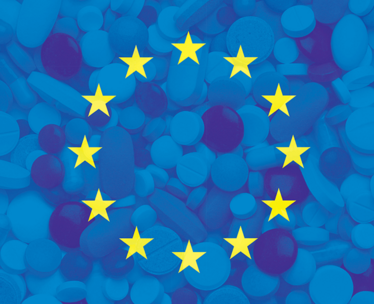To Err is Human
But can pharma manufacturers do more to help prevent medication errors?
Medication errors are the most common preventable cause of adverse events, and the European Medicines Agency (EMA) is keen to tackle the root causes; the agency is inviting stakeholders to comment on two draft good practice guides that aim to help regulatory authorities and the pharma industry tackle the problem – and ensure proper reporting.

The first guide focuses on prevention of medication errors and outlines the key principles of risk management planning in relation to design, presentation, labeling, naming, and packaging (1). “Individual studies have reported inpatient medication error rates of 4.8 to 5.3 percent and in another study, prescribing errors for inpatients occurred 12.3 times per 1000 patient admissions,” states the EMA guide. “In most cases medication errors are preventable, provided that the potential risks of medication errors have been considered during the product development and early marketing phases (when most medication errors will occur), appropriate measures put in place and reactive measures taken in response to documented reports of medication error.”
Some of the elements discussed in the guide include the importance of product design and product differentiation. For example, the guide says that consideration should be given to already-available therapies and “whether there is the potential for confusion or mix-ups between products with the same indications due to similarities in posology, appearance, method of administration, strength or packaging.” We discussed the power of product design in preventing medication errors in a previous issue (tmm.txp.to/0215/color).
And it’s not just limited to marketed drugs – errors in clinical trial programs are also discussed, such as those resulting from poorly formatted or absent product information. The guide states that applicants should provide an appropriate risk analysis for errors that arise during the clinical trial program and use them as the basis for “refinement”.
Recording, coding, reporting and assessing medication errors are covered in the second guide (2). Some of the recommendations in the guide include advice for dealing with medication errors brought to the attention of marketing authorization holders that are not associated with adverse reactions. “One of the objectives of this guidance is the establishment of good practice for sharing information on medication errors associated with adverse reaction(s) between national competent authorities responsible for pharmacovigilance of medicinal products and authorities, bodies, organizations and/or institutions responsible for patient safety reporting and learning systems in EU Member States,” states the guide.
Both documents stem from a joint action plan on medication errors, which was produced in 2013. The closing date for comments is June 14, 2015.
- EMA, Draft Guide, “Good Practice Guide on Risk minimization and Prevention of Medication Errors” (April, 2015), www.ema.europa.eu
- EMA, Draft Guide, “Good Practice Guide on Recording, Coding, Reporting and Assessment of Medication Errors” (April, 2015), www.ema.europa.eu

Making great scientific magazines isn’t just about delivering knowledge and high quality content; it’s also about packaging these in the right words to ensure that someone is truly inspired by a topic. My passion is ensuring that our authors’ expertise is presented as a seamless and enjoyable reading experience, whether in print, in digital or on social media. I’ve spent fourteen years writing and editing features for scientific and manufacturing publications, and in making this content engaging and accessible without sacrificing its scientific integrity. There is nothing better than a magazine with great content that feels great to read.



















